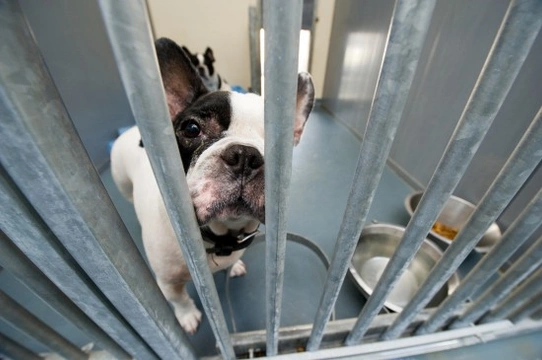
Tackling behavioural problems in adopted dogs
If you make the admirable decision to buy or adopt an older dog from a rehoming shelter or rescue centre, you will find yourself richly rewarded in love and loyalty from the dog that you choose. However, bringing home an adult dog with an uncertain history can bring challenges along with it, and often these are issues that people who get a puppy and raise it from scratch will not have to face.
Getting an adopted dog settled into your routine and obedient to the boundaries within the home can take time to achieve, and in some cases, you might find yourself challenged by responses and behaviours that do not make sense to you, but that make sense to your dog in the context of their past experiences.
In order to address this and troubleshoot any problems that you might run into early on, in this article, we will look at how to tackle some common behavioural problems that can present themselves in older adopted dogs. Read on to learn more.
Nerves, anxiety and trust
While some older adopted or rescued dogs are confident, open and friendly and immediately settle into their new home with their new owners, some adopted dogs will come with their own personal “baggage” and uncertainty, either because they have never had a secure home or because they have had previous bad experiences with people.
If a dog has never been able to rely on a person to get their needs met, or has not been dealt with consistently with love and fairness, they will not expect these things from you, and their past experiences will set the stage for how they will interact with you during the early stages of your time together.
This means that you will have to work hard to gain your dog’s trust and to get them to settle down, and accommodate for your dog’s prior history, which may also encompass things that you are not even aware of.
Speak kindly and calmly to your dog, be gentle and encouraging to them, and be consistent in your responses to them. Do not allow nervousness or anxiety to stop you from establishing a routine with your new dog, as this will help to provide them with the security that they need to settle down and begin to trust both you, and their new living situation.
Unusual fears
Sometimes, rescued and adopted dogs will have suffered from neglect, and not have been exposed to the usual range of stimulus that well cared for dogs are used to. This might manifest in any one of a wide variety of ways, including strange and inexplicable fears of certain things that do not make any sense to us as owners!
Be it the sound of the television, a squeaky toy or the doorbell, all sorts of potential new stimulus will be presented to your dog, who may not have had the chance to get comfortable with these everyday new experiences. Added to this, you will not know if your dog has a real and rational fear of certain objects that they have been mistreated with before, which is something else that you will need to learn as you go along.
When your dog shows fear of new stimulus, reassure them but carry on as normal, so that you do not inadvertently reinforce their fear of the item in question.
Aggressive responses
A dog that is uncertain or not yet comfortable in their home may display fear aggression or defensive aggression in certain situations, as they are expecting something negative to happen to them. This may include resource guarding aggression over things like beds, food and toys, or a default setting of taking on a defensive stance if approached.
These sorts of problems will tend to settle down over time, and there is a fine line between reassuring your dog and teaching them that they do not need to respond to something with fear aggression, and with reinforcing negative behaviour.
Learned bad habits
Some adopted dogs will simply not know how to behave appropriately within a home environment, and this can manifest itself in all sorts of different ways, such as destructive behaviour, going to the toilet in the house or simply not understanding the rules.
It is important to set boundaries from the get-go that your dog will learn and respect over time, and to treat them as you would any other adult or puppy dog in the home and not let them get away with things that you would not usually do.
Can all adopted dog problems be fixed?
Hopefully, your adopted dog will soon get to grips with their new situation and settle into their new life as a loved and respected part of the family. But depending on your dog’s background and the stimulus they have faced before, this can be challenging to achieve on your own.
Consider calling in the help of a canine behaviourist or dog training expert if you find that you are not able to correct serious issues all on your own.



